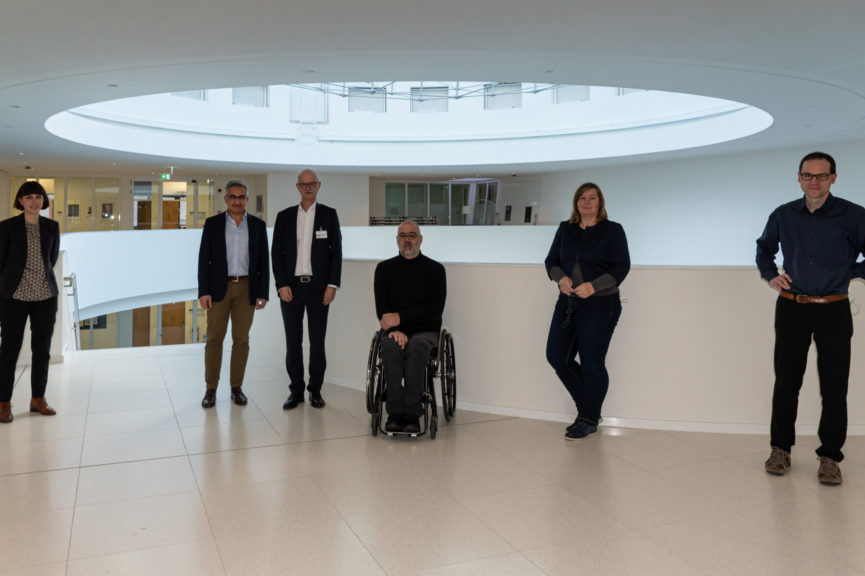On February 2, Prof. Prömel, the Founding President of the University of Technology Nuremberg, met with directors and researchers of the Max Planck Institute for the Science of Light. On the agenda for the meeting in Erlangen were, among other things, future cooperations.
From microphotonics to quantum optoacoustics: Topics covered during the visit to the Max Planck Institute for the Science of Light were science, reasearch and possible joint projects. After the constructive exchange, Founding President Prof. Prömel gained insights into the Institute’s focusses in a guided tour around standard and clean-room laboratories.
“We should definitely seize to opportunity presenting itself by networking between the scientific research locations here in Franconia”, emphasized Jochen Guck, Director at the Max Planck Institute for the Science of Light. Prof. Prömel was also open to possible cooperations: “We are literally a startup on the academic landscape; the existing know-how in the region will help us achieve top-notch levels in research and teaching.” Both sides intend to continue their talks to pinpoint specific possibilities for a cooperation, also in the field of quantum engineering, biotechnology or artificial intelligence.

On February 2, Prof. Prömel, the Founding President of the University of Technology Nuremberg, met with directors and researchers of the Max Planck Institute for the Science of Light. On the agenda for the meeting in Erlangen were, among other things, future cooperations.
From microphotonics to quantum optoacoustics: Topics covered during the visit to the Max Planck Institute for the Science of Light were science, reasearch and possible joint projects. After the constructive exchange, Founding President Prof. Prömel gained insights into the Institute’s focusses in a guided tour around standard and clean-room laboratories.
“We should definitely seize to opportunity presenting itself by networking between the scientific research locations here in Franconia”, emphasized Jochen Guck, Director at the Max Planck Institute for the Science of Light. Prof. Prömel was also open to possible cooperations: “We are literally a startup on the academic landscape; the existing know-how in the region will help us achieve top-notch levels in research and teaching.” Both sides intend to continue their talks to pinpoint specific possibilities for a cooperation, also in the field of quantum engineering, biotechnology or artificial intelligence.